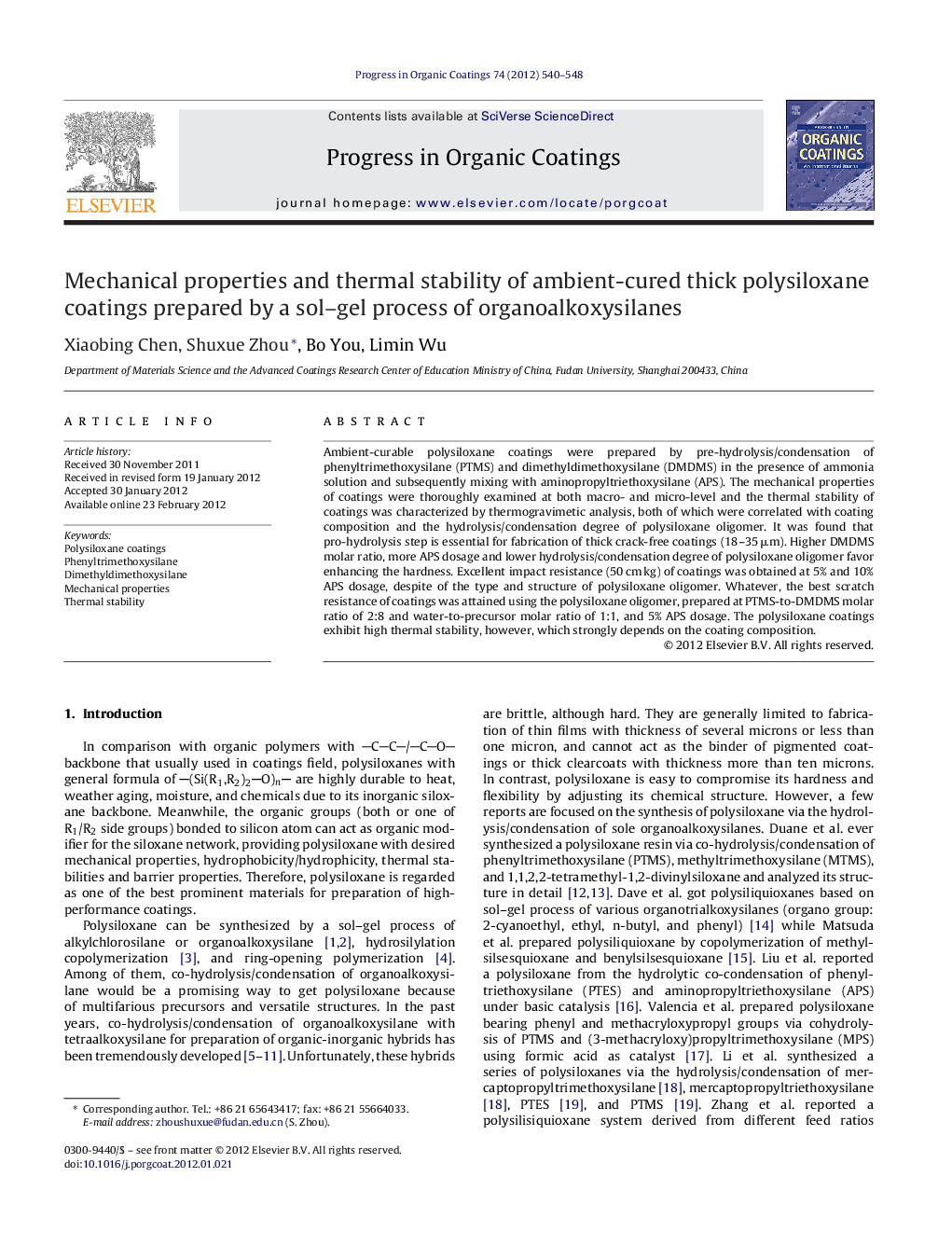| Article ID | Journal | Published Year | Pages | File Type |
|---|---|---|---|---|
| 693179 | Progress in Organic Coatings | 2012 | 9 Pages |
Ambient-curable polysiloxane coatings were prepared by pre-hydrolysis/condensation of phenyltrimethoxysilane (PTMS) and dimethyldimethoxysilane (DMDMS) in the presence of ammonia solution and subsequently mixing with aminopropyltriethoxysilane (APS). The mechanical properties of coatings were thoroughly examined at both macro- and micro-level and the thermal stability of coatings was characterized by thermogravimetic analysis, both of which were correlated with coating composition and the hydrolysis/condensation degree of polysiloxane oligomer. It was found that pro-hydrolysis step is essential for fabrication of thick crack-free coatings (18–35 μm). Higher DMDMS molar ratio, more APS dosage and lower hydrolysis/condensation degree of polysiloxane oligomer favor enhancing the hardness. Excellent impact resistance (50 cm kg) of coatings was obtained at 5% and 10% APS dosage, despite of the type and structure of polysiloxane oligomer. Whatever, the best scratch resistance of coatings was attained using the polysiloxane oligomer, prepared at PTMS-to-DMDMS molar ratio of 2:8 and water-to-precursor molar ratio of 1:1, and 5% APS dosage. The polysiloxane coatings exhibit high thermal stability, however, which strongly depends on the coating composition.
► Ambient-curable polysiloxane coatings were prepared with PTMS, MDMS and APS. ► Pro-hydrolysis step is essential for fabrication of thick crack-free coatings. ► Dependence of mechanical properties on coating composition and structure was studied. ► The coatings exhibit excellent mechanical properties and high thermal stability.
